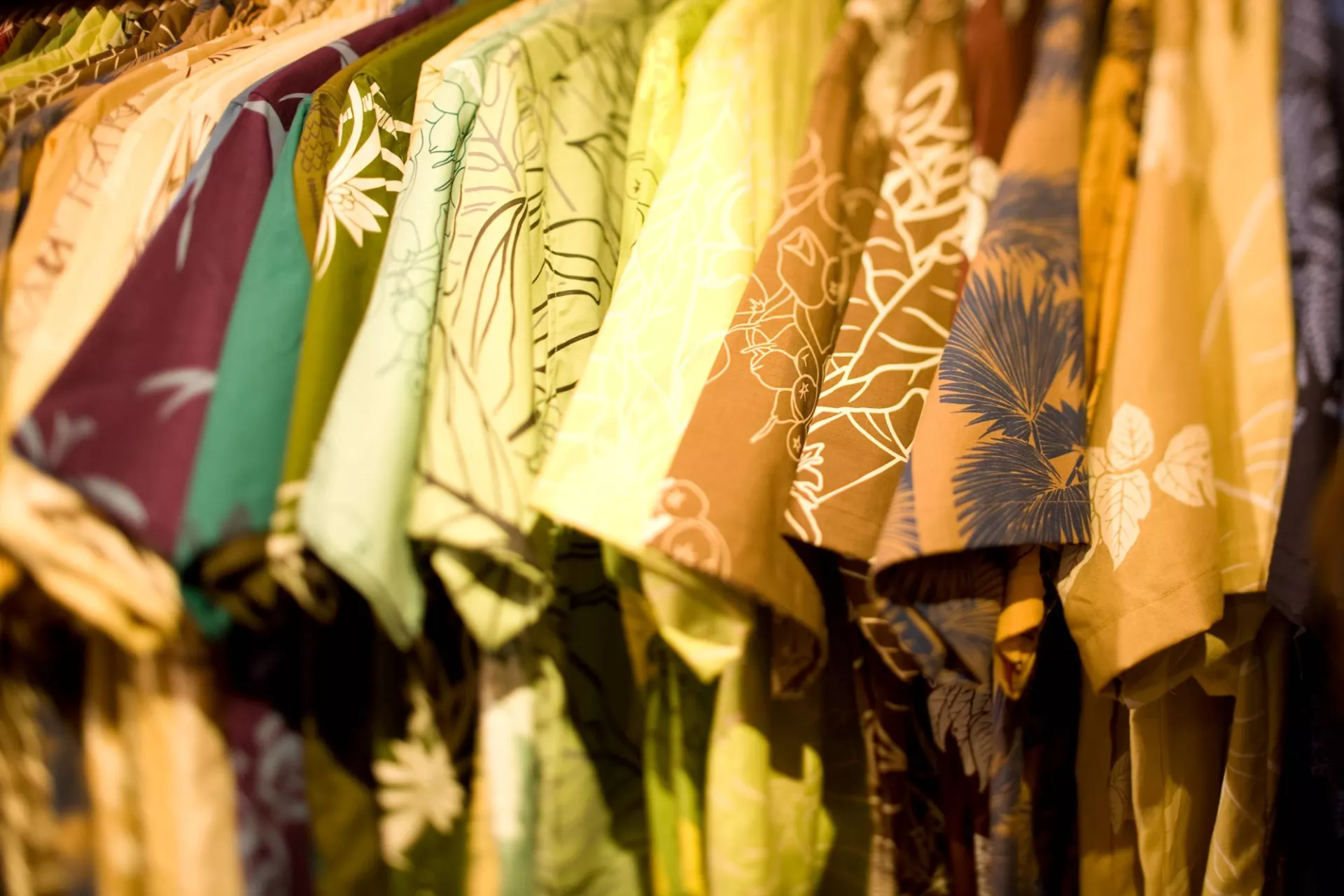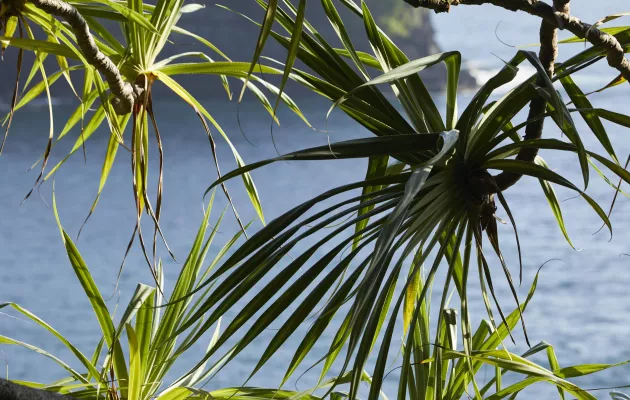
 Before You Travel
Before You Travel
Preparing for Your Trip to Hawaiʻi
The first step to an enjoyable trip to Hawaiʻi is being well-informed about what to bring and how to prepare before your visit. Here are a few of the essentials you need to know before you travel.
Pet Restrictions
Animal Quarantine
Animal quarantine is required for all dogs, cats and other carnivores upon arrival in the state of Hawaiʻi. (See more info about service animals, specifically, below.) The reason why quarantine is required is because Hawaiʻi is the only rabies-free state and it is vital that we maintain that status. The introduction of rabies would have dire circumstances, not only for public health, but would have an adverse affect on Hawaiʻi’s unique eco-system, tourism, as well as local lifestyle. Because Hawaiʻi is rabies-free, resident pets are not required to be vaccinated for rabies. Should rabies become established in the state, animal and human health programs and rabies disease control programs would be very costly for the citizens of the entire state. To prevent rabies from entering the state, the current law requires that dogs, cats and carnivores complete either the 120-day or 5-day-or-less rabies quarantine. The law also requires that entire cost of the rabies quarantine program be paid by the users of the quarantine facility. You can find more information about animal quarantine from the state.
Service Animals
There are specific exemptions from quarantine for some service and guide dogs. More information about service dog quarantine exemptions can be found via the state's Animal Industry Division website. Please note that unless you have received prior permitting, all service animals entering Hawaiʻi must do so through the Honolulu International Airport.
Agricultural Restrictions
Flying to Hawaiʻi is different than traveling to many other destinations. According to the Hawaiʻi Biological Survey, Hawaiʻi is the “endangered species capital of the world,” with more endangered or threatened species per square mile than any other place on the planet.
Bringing non-native species of plants and animals into The Hawaiian Islands can cause harmful effects on human health and well-being, agriculture and Hawaiʻi’s fragile native ecosystem. As a result, the State of Hawaiʻi Department of Agriculture requires passengers arriving with plants, seeds, animals and any other agricultural materials to declare them on the Agricultural Declaration Form distributed aboard your flight to Hawaiʻi. Plant quarantine inspectors will be stationed in the baggage claim area to examine baggage and agricultural items. There is also an optional survey passengers may fill out on the back side of the form.
Please kōkua (help) us in protecting our unique environment, agriculture and communities.
What to Pack
In Hawaiʻi, every day feels like Aloha Friday. Clothing is casual, and except for one or two upscale restaurants, jackets are not required for dinner. Men in Hawaiʻi have it easy because aloha shirts (casual button-down or collared shirts) are appropriate for just about any occasion. Hawaiʻi’s year-round tropical climate ranges from bikini weather during the day to a light sweater or jacket in the evening. Comfortable shoes or sandals are fine for most occasions.
Sun Protection
Hawaiʻi’s proximity to the sun makes for gorgeous tans and nasty sunburns, even on cloudy days. If you want that golden glow, tan slowly with a high SPF sunscreen. Bring reef-safe sunscreen to help prevent bleaching of coral and other damage to the islands' ocean habitat. Also, protect yourself with a brimmed hat and sunglasses.
Ocean Activities
If you will be boating, swimming, surfing or enjoying any of Hawaiʻi’s other water activities, bring sun protection gear and sunscreen. Swimsuits are easy to purchase, and scuba suits and gear can be rented.
Outdoor Wear
If you will be hiking or will require specialty clothing/equipment, consider buying your gear before you arrive, as the selection can be limited on some islands. A light jacket is recommended for wind and rain. This is especially important if you will be spending lengthy amounts of time on the summits of Haleakalā on Maui or Maunakea on the island of Hawaiʻi, or camping in higher elevations like Upcountry Maui or Hawaiʻi Volcanoes National Park. See our weather page for more details.
Golf Attire
Most of the golf courses — public, resort or private — in Hawaiʻi require "proper golf attire," which usually means a collared shirt and dress shorts or slacks—no denim, cargo- or sports shorts. When in doubt, it's best to contact the course or pro shop. There is no dress requirement for municipal courses.
Business Aloha
This term refers to the “Downtown Honolulu” look and is appropriate for business functions and better restaurants. Men: aloha shirt, slacks and dress shoes. For women, it generally means aloha or business attire.
Airport Security
The Transportation Security Administration (TSA) screens all flights to and from Hawaiʻi. Here’s a brief overview of what to expect at the airport. Please see the TSA website for specific guidelines.
- Have acceptable identification at the security checkpoint. Adult passengers (18 and over) are required to show a U.S. federal or state-issued photo ID in order to be allowed to go through the checkpoint and onto their flight.
- When possible, do not pack oversized electronics (laptops, full-size video game consoles, DVD players and video cameras that use cassettes) in checked baggage.
- Passengers are allowed to carry on liquids, aerosols and gels in limited quantities according to the 3-1-1 rule: Bottles of 3.4 ounces (100ml) or less (by volume), placed in one quart-sized clear plastic zip-top bag, and 1 bag per passenger placed in screening bin.
- If a passenger cannot or chooses not to be screened by imaging technology or a walk-through metal detector, the passenger will be screened using a thorough pat down procedure instead.
- For the safety and security of the traveling public, TSA, the Federal Aviation Administration (FAA) and/or airlines have prohibited certain items including sharp objects, sporting goods, guns and firearms, tools, martial arts and self-defense items, explosive and flammable materials, disabling chemicals and other dangerous items.
- There are special screening procedures for passengers 75 and older.
- When traveling with food or gifts, the same liquid rule applies. When in doubt, pack it in your checked luggage.
Important Documents
Make copies of your important travel documents and leave them with a person whom you trust (that is not traveling with you). Documents include, but are not limited to:
- Passport
- Driver's license
- Medical and automobile insurance cards
Know and have access to important phone numbers, such as relatives at home, credit card issuers, medical physicians, insurance companies, your airline, hotel, car rental company and other contacts you may need to reach while staying in Hawaiʻi.
Passports, visas and other documents may be required of travelers who are not U.S. citizens. See our International Travelers page for more information.
Weather in Hawaiʻi


